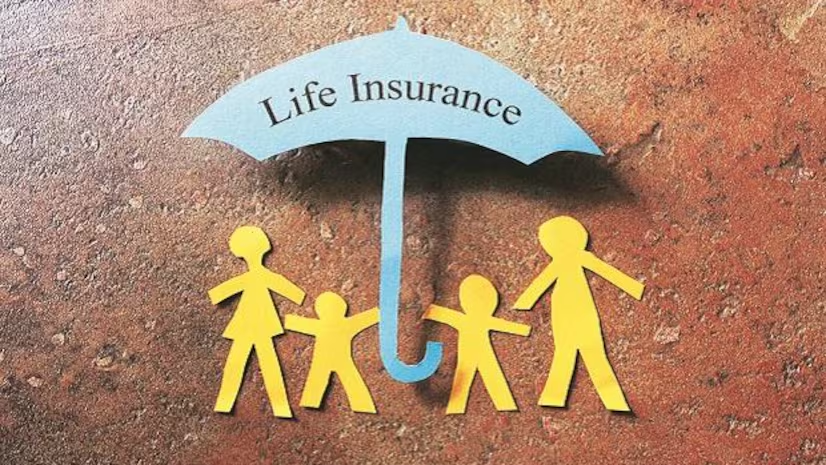Life insurance is a critical component of financial planning, offering peace of mind and security for your loved ones. However, many people wonder if they are overpaying for their life insurance policies. With so many providers, policy types, and premium structures available, it’s easy to pay more than necessary if you’re not informed. This article delves into the various factors that influence life insurance costs, how to assess if you’re overpaying, and practical steps to optimize your coverage without compromising on benefits.
Key Takeaways
- Life insurance premiums are affected by age, health, lifestyle, and coverage type.
- Many people overpay due to outdated policies or unnecessary riders.
- Regularly comparing insurance quotes can help find better deals.
- Improving your health and reassessing your coverage can lower your premiums.
- Always ensure new coverage is active before cancelling an existing policy.
Understanding Life Insurance Basics
What Is Life Insurance? Life insurance is a contract between an individual and an insurance company. In exchange for regular premium payments, the insurer agrees to pay a sum of money to the designated beneficiaries upon the policyholder’s death. This money can help cover debts, daily expenses, and future needs like education or retirement for surviving dependents.
Types of Life Insurance There are primarily two types:
- Term Life Insurance: Offers coverage for a specific period (e.g., 10, 20, or 30 years) and is generally more affordable.
- Permanent Life Insurance: Includes whole life, universal life, and variable life insurance. It offers lifelong coverage and a cash value component but is typically more expensive.
Factors That Influence Life Insurance Costs
Age and Health The younger and healthier you are, the lower your premium. Age and medical history are primary factors insurers use to determine risk.
Type and Amount of Coverage Permanent policies cost more than term policies. The higher the death benefit, the more you’ll pay in premiums.
Lifestyle Choices Smoking, risky hobbies (like skydiving or scuba diving), and occupation (e.g., working in construction or mining) can increase premiums.
Gender and Family Medical History Statistically, women tend to live longer than men, so they often receive lower premiums. A family history of chronic illness may also influence pricing.
Policy Riders and Additional Benefits Adding riders like accidental death coverage, waiver of premium, or child term riders can increase the cost.
Signs You Might Be Overpaying
You Haven’t Compared Policies in Years Life insurance rates and products evolve. If you bought a policy years ago and never revisited it, there might be better options now.
Your Health Has Improved If you’ve quit smoking, lost weight, or improved a chronic condition, you might now qualify for lower premiums.
You’re Paying for Unnecessary Riders Additional benefits are great, but only if they’re useful. Evaluate if all riders are truly needed.
You Bought a Permanent Policy but Only Need Term Many people buy permanent insurance for its cash value or lifelong coverage but may not need it. If your financial dependents will become self-sufficient in 20 years, a term policy might suffice.
You Were Grouped Into a Higher Risk Category Unfairly Sometimes, insurers play it safe and categorize applicants into higher risk brackets. If you feel this happened, get a second opinion.
How to Lower Your Life Insurance Premiums
Shop Around and Compare Quotes Use online tools and work with independent agents who can compare policies from multiple providers.
Reassess Your Coverage Needs Do you need a $1 million policy, or would $500,000 suffice? Re-evaluate based on your current debts, family needs, and financial goals.
Opt for Term Instead of Whole Life Unless you have a specific need for permanent insurance, term life is often more cost-effective.
Improve Your Health Lose weight, exercise regularly, quit smoking, and manage chronic conditions to move into a lower risk category.
Ask for Reconsideration If your health has improved since you bought the policy, request a reassessment from your provider.
Eliminate Unnecessary Riders Strip down your policy to only essential coverage to reduce costs.
Bundle Insurance Products Some insurers offer discounts if you bundle life insurance with home or auto coverage.
How Do You Choose Between Term and Whole Life Insurance?
Description:
Many consumers struggle to understand which type of life insurance is right for them. This article can break down the key differences between term life and whole life, including cost comparisons, cash value accumulation, flexibility, and ideal use cases. Include case studies or examples of different life stages and how each policy type fits.
Sections May Include:
- What is term life insurance?
- What is whole life insurance?
- Pros and cons of each
- Financial goals and policy suitability
- Common mistakes in choosing
Is Life Insurance a Good Investment Strategy?
Description:
Some life insurance products, like whole, variable, or universal life insurance, offer investment components. But are they smart choices compared to traditional investments? This article can explore how the cash value works, fees, returns, risks, and whether it’s worth it for retirement planning or wealth transfer.
Sections May Include:
- Investment vs. insurance: where they overlap
- Policy returns vs. mutual funds or ETFs
- Tax advantages
- Who benefits from investment-linked life insurance
- Financial advisor insights
How Much Life Insurance Coverage Do You Actually Need?
Description:
Too little coverage can leave families vulnerable, while too much can waste money. This article can help readers calculate the right amount using methods like DIME (Debt, Income, Mortgage, Education) and human life value. Tailor advice for singles, married couples, parents, and retirees.
Sections May Include:
- Key financial obligations to cover
- Calculating future needs
- Tools and calculators
- Adjusting coverage over time
- Real-life examples
What Are the Hidden Costs and Fees in Life Insurance Policies?
Description:
Life insurance isn’t always as straightforward as the premium you pay. This piece can examine administrative fees, surrender charges, mortality and expense risk fees, and commission structures—especially in permanent policies. Help readers spot and avoid policies with excessive fees.
Sections May Include:
- Common hidden fees explained
- How to read a life insurance policy
- Comparing fee structures across providers
- Questions to ask your agent
- Regulatory protections for buyers
Can You Get Life Insurance Without a Medical Exam? Pros and Cons Explained
Description:
No-medical-exam policies are becoming more popular, especially for younger people and those in good health. But they often come with trade-offs. This article can explore guaranteed issue, simplified issue, and accelerated underwriting options, along with who should and shouldn’t choose them.
Sections May Include:
- Types of no-exam policies
- Cost comparison vs. traditional underwriting
- Speed and convenience
- Who qualifies
- Red flags to watch out for
Why Life Insurance Is Still Important Even If You’re Single or Child-Free
Description:
Many people assume life insurance is only for parents or spouses. This article can help reframe that misconception by explaining how it benefits singles—for covering debts, funeral expenses, leaving a legacy, charitable giving, or supporting aging parents.
Sections May Include:
- Reasons single people need life insurance
- Debt and final expense planning
- Beneficiary planning for non-traditional families
- Tax implications and estate planning
- Charitable giving through life insurance
How Life Insurance Supports Estate Planning and Wealth Transfer
Description:
Life insurance is a powerful tool for high-net-worth individuals and families to transfer wealth efficiently. This article can explore how to use policies for estate taxes, trust funding, equalizing inheritances, and business succession planning.
Sections May Include:
- Life insurance as an estate planning tool
- Irrevocable life insurance trusts (ILITs)
- Planning for blended families
- Life insurance for business owners
- Coordination with wills and legal documents
What Happens to Your Life Insurance if You Outlive Your Policy?

Description:
This article can address a common concern with term life insurance—what happens if the policyholder survives the term? It can explain options like renewing, converting to permanent insurance, or purchasing new policies. It can also highlight return-of-premium (ROP) policies and explore cost-benefit analyses.
Sections May Include:
- What is a term policy’s end date?
- Options after the term expires
- Pros and cons of policy conversion
- Should you renew or buy new?
- When to consider ROP policies
How Does Life Insurance Work for People with Pre-Existing Conditions?
Description:
Getting life insurance with diabetes, heart disease, or cancer can be challenging but not impossible. This article can detail how insurers assess medical risks and which no-exam or high-risk policies are available. Also include tips on improving insurability and navigating the application process.
Sections May Include:
- Common conditions and insurer perspectives
- Graded benefits vs. traditional underwriting
- Honest disclosure: what to report
- Best companies for high-risk applicants
- Medical improvement tips to lower premiums
Can You Use Life Insurance to Pay for College or Retirement?
Description:
Explore the financial flexibility of permanent life insurance with a cash value component. Discuss how some families borrow against their policy to fund college tuition or supplement retirement income. Include pros, cons, risks, and IRS tax treatment.
Sections May Include:
- Borrowing from cash value: how it works
- Advantages and risks of loans
- College funding vs. 529 plans
- Using life insurance for tax-advantaged retirement
- When to avoid tapping into policies
Is Group Life Insurance from Your Employer Enough?
Description:
Employer-sponsored life insurance is often seen as a perk—but is it sufficient? This article can compare group vs. individual policies, explain coverage limits, and suggest when to supplement with personal insurance. Include scenarios of job loss, retirement, and portability challenges.
Sections May Include:
- What group policies offer (and what they don’t)
- Limitations in coverage
- Losing coverage when changing jobs
- How to layer with individual policies
- Cost comparison of group vs. term
How Can Stay-at-Home Parents Benefit from Life Insurance?
Description:
Many overlook insuring a stay-at-home parent, assuming life insurance is only for income earners. This article can show the monetary value of unpaid work—childcare, cooking, transportation—and how replacing those services impacts a family’s finances.
Sections May Include:
- Why coverage is needed for non-working spouses
- Calculating economic contributions
- Best policies for stay-at-home parents
- How much coverage to buy
- Joint policies and family planning
What Role Does Life Insurance Play in Business Protection?
Description:
Businesses often rely on key individuals. This article can cover key person insurance, buy-sell agreements, and life insurance for business loans. It’s great for entrepreneurs, startups, and family-owned companies looking to safeguard continuity.
Sections May Include:
- What is key person insurance?
- Using life insurance for buy-sell agreements
- Protecting business loans with coverage
- Choosing coverage amounts and beneficiaries
- Real-world examples of business continuity
What Are the Most Common Life Insurance Myths That Cost You Money?
Description:
Tackle widespread misconceptions like “I’m too young,” “My job provides enough,” or “It’s too expensive.” This article can combine educational insights and myth-busting to help readers make informed choices—and possibly save thousands.
Sections May Include:
- Top 10 myths and the truth behind them
- How myths affect your wallet and protection
- Psychological barriers to buying life insurance
- Guidance for younger demographics
- Overcoming fear or confusion with facts
Can You Leave a Lasting Legacy with Life Insurance?
Description:
Life insurance isn’t just for income replacement—it can be a powerful tool for legacy planning. This article explores how life insurance enables individuals to leave charitable donations, multi-generational wealth, or specific inheritance allocations. It also discusses using trusts and beneficiary designations for purposeful giving.
Sections May Include:
- The concept of legacy planning through insurance
- Setting up charitable beneficiaries
- Using life insurance to support grandchildren or heirs
- Leveraging irrevocable life insurance trusts (ILITs)
- Tax advantages in estate planning
How Do Life Insurance Premiums Work and What Makes Them Change?
Description:
This deep-dive explains what life insurance premiums are, how they’re calculated, and why they fluctuate over time. Readers will learn about level vs. increasing premiums, policy renewals, and the role of underwriting. Ideal for anyone confused by rising costs or renewal rates.
Sections May Include:
- Anatomy of a premium: mortality cost, fees, risk
- Level term vs. increasing term premiums
- What triggers higher premiums
- How renewal premiums are calculated
- Tips for keeping premiums stable
How Do Beneficiaries Claim Life Insurance After a Death?
Description:
When a loved one dies, beneficiaries must go through a claims process to receive the life insurance payout. This article can serve as a step-by-step guide on how to claim benefits smoothly, what documents are needed, and how to avoid disputes or delays.
Sections May Include:
- How to find out if you’re a beneficiary
- Documents required (death certificate, claim form, ID)
- Typical payout timelines
- Common reasons claims are delayed or denied
- Tax considerations on the death benefit
Is Life Insurance Still Worth It After Retirement?
Description:
Many retirees wonder whether they should keep paying for life insurance once they’ve retired and their children are grown. This article can help readers weigh the pros and cons, especially for those focused on estate planning, final expenses, or legacy gifting.
Sections May Include:
- Assessing post-retirement financial needs
- Types of life insurance suited for retirees
- Using cash value during retirement
- When it makes sense to drop coverage
- Alternatives like burial or final expense policies
What Should You Know Before Naming a Life Insurance Beneficiary?
Description:
Naming the right beneficiary is one of the most critical parts of setting up a life insurance policy—but it’s often overlooked. This article guides readers on how to choose wisely, handle minor children, multiple beneficiaries, and trusts, and how to avoid probate issues.
Sections May Include:
- Primary vs. contingent beneficiaries
- What happens if a beneficiary dies before you?
- Should you name your estate as the beneficiary?
- Handling minors and guardianship
- Updating beneficiaries after life events
What Is Final Expense Insurance and Who Really Needs It?

Description:
Also known as burial insurance, final expense insurance is marketed to older adults who want to ease the financial burden on their families. This article can explore how it works, costs, who benefits most, and how it compares to other small coverage policies.
Sections May Include:
- What is final expense insurance?
- Average funeral and burial costs
- Pros and cons of small whole life policies
- Alternatives like savings or prepaid funerals
- Best providers and coverage amounts
What Are the Different Riders You Can Add to a Life Insurance Policy?
Description:
Life insurance riders offer policy customization, but many buyers don’t understand what’s available or necessary. This article can explain the most common riders—like accelerated death benefits, waiver of premium, and long-term care riders—along with costs, benefits, and suitability.
Sections May Include:
- Overview of popular riders and what they do
- Which riders add the most value
- Riders for chronic illness or disability
- How much riders typically cost
- When to skip riders to save money
What Role Does Life Insurance Play in Financial Planning?
Description:
Life insurance is often viewed solely as a death benefit, but it plays a multifaceted role in a well-rounded financial plan. This article explores how life insurance complements other financial tools, including debt management, emergency funds, wealth preservation, and retirement strategies. It provides practical frameworks for integrating life insurance into short-, medium-, and long-term goals.
Sections May Include:
- Life insurance as income protection
- Using insurance in debt and estate planning
- Tax-efficient wealth transfer
- Comparing to savings and investment accounts
- Ideal financial planning timelines by age group
How Do You Update or Change Your Life Insurance Policy?
Description:
As life evolves—through marriage, childbirth, career changes, or illness—your life insurance should evolve too. This article can guide readers through the policy update process, how to adjust beneficiaries, increase or decrease coverage, and modify riders.
Sections May Include:
- When and why to review your policy
- How to change beneficiaries correctly
- Adding or removing riders
- Upgrading from term to whole life
- Avoiding lapses or unintended consequences
What Are the Differences Between Individual and Joint Life Insurance Policies?
Description:
Joint life policies are marketed to couples and business partners, but are they better than individual coverage? This article can compare first-to-die and second-to-die (survivorship) policies, explaining their advantages, tax strategies, and limitations.
Sections May Include:
- What is joint life insurance?
- Key differences from individual policies
- Use cases for couples and estate planning
- Pros and cons of survivorship insurance
- How premiums and payouts work
What Should You Know About Life Insurance for Children?
Description:
While controversial, some parents purchase life insurance for their children for guaranteed insurability, cash value savings, or burial coverage. This article explores the ethical, financial, and practical aspects of buying a juvenile life policy, including when it might make sense and when to skip it.
Sections May Include:
- Understanding child life insurance
- Types of policies available
- Pros and cons: peace of mind vs. practicality
- Alternatives: custodial savings, 529 plans
- Insurability for children with medical conditions
What Is Supplemental Life Insurance and Should You Get It?
Description:
Many employers offer supplemental life insurance to enhance basic group coverage. But is it enough? This article explores how supplemental policies work, how to evaluate them, and when purchasing additional individual coverage is smarter.
Sections May Include:
- What is supplemental life insurance?
- Differences from group and individual plans
- Evaluating workplace benefits
- Cost breakdown and portability concerns
- When to consider buying more
How Does Life Insurance Work During Divorce or Separation?
Description:
Divorce introduces complexities in financial planning—including life insurance. This article can guide readers on court-ordered coverage, child support considerations, and how to protect co-parenting obligations through proper beneficiary designations and policy structures.
Sections May Include:
- Life insurance as part of divorce settlements
- Updating beneficiaries post-divorce
- Ensuring coverage for child support/alimony
- What to do with joint life policies
- Legal and tax implications
How Do Taxes Affect Life Insurance Benefits?

Description:
Many believe life insurance is always tax-free—but there are exceptions. This article will break down the tax implications of death benefits, cash value withdrawals, policy loans, and estate taxation. Ideal for readers with high-net-worth concerns or those using life insurance in retirement.
Sections May Include:
- Tax treatment of death benefits
- When cash value growth is taxable
- Estate tax thresholds and ILITs
- 1035 exchanges and tax deferral
- Capital gains vs. income tax exposure
How Does Life Insurance Work for Freelancers and Gig Workers?
Description:
Freelancers, gig workers, and the self-employed don’t have the luxury of employer-provided life insurance. This article can explore the unique challenges these workers face in securing adequate life insurance and offer solutions for finding affordable and flexible coverage. It can also compare term vs. whole policies and suggest budget-friendly tips.
Sections May Include:
- Why freelancers need independent life insurance
- Understanding income replacement calculations
- Finding insurers that cater to self-employed individuals
- Tax tips for deducting insurance (where applicable)
- Building long-term financial protection
Can Life Insurance Be Denied? What You Need to Know About Rejection and Appeals
Description:
This article discusses the reasons life insurance applications are denied and what steps applicants can take afterward. Topics include inaccurate medical disclosures, high-risk occupations, underwriting errors, and how to appeal or reapply effectively.
Sections May Include:
- Top reasons life insurance is denied
- What happens next: reapplication vs. appeal
- Improving your insurability
- Alternatives like guaranteed issue policies
- Legal recourse and how to file a complaint
What Is the Role of Underwriting in Life Insurance Approval?
Description:
Underwriting is a key part of life insurance approval, but few understand how it works. This article can explain medical exams, lifestyle assessments, MIB reports, and how decisions are made. It can also offer tips to prepare for the process and boost approval odds.
Sections May Include:
- What underwriters look for
- Medical exams vs. no-exam policies
- Risk classifications: preferred vs. standard
- How lifestyle and occupation impact results
- Tips to navigate the underwriting process
How to Use Life Insurance to Cover Mortgage and Debt Protection
Description:
Life insurance can do more than replace income—it can ensure your loved ones aren’t burdened by debt. This article can explore how to match policy values to major liabilities like home loans, student debt, credit cards, or business loans.
Sections May Include:
- What is mortgage protection insurance?
- Pros and cons of debt-specific coverage
- Creating layered insurance strategies
- Alternatives to credit life insurance
- Protecting co-signers and heirs
What Is Indexed Universal Life Insurance (IUL) and Is It Right for You?
Description:
IUL is a complex permanent life insurance product tied to a stock market index (like the S&P 500). This article can help readers understand how it works, growth potential vs. risk, and whether it’s suitable for long-term savings or retirement planning.
Sections May Include:
- How IUL policies earn interest
- Comparing IUL to whole and variable life
- Risks and caps on returns
- Ideal candidates for IUL
- Common sales traps to avoid
How to Use Life Insurance to Fund a Buy-Sell Agreement in Business
Description:
Business owners often use life insurance to fund buy-sell agreements that ensure continuity in case of a partner’s death. This article can explain how to set these up, how funding works, and legal structures like cross-purchase and entity-purchase agreements.
Sections May Include:
- What is a buy-sell agreement?
- Life insurance as a funding vehicle
- Types of agreements and how they work
- Real-life examples of successful transitions
- Mistakes to avoid in structuring agreements
What Happens to Life Insurance in Bankruptcy or Financial Crisis?
Description:
When individuals or businesses face bankruptcy, what happens to their life insurance? This article can explore asset protection laws, cash value policies, and how life insurance is treated in Chapter 7 or Chapter 13 bankruptcy.
Sections May Include:
- Is life insurance protected in bankruptcy?
- State-by-state exemptions for cash value
- Creditors and policy claims
- How to safeguard beneficiaries
- Advice for policyholders under financial stress
- Conclusion
Life insurance is an essential safeguard for your family, but that doesn’t mean you should overpay for peace of mind. Many policyholders are stuck with outdated, overpriced, or overly complex insurance plans. By understanding what affects premium costs and actively comparing your options, you can ensure that your life insurance policy is both protective and cost-effective.
Take the time to assess your current policy. Ask yourself: does it meet my present needs? Is it competitively priced? If not, it might be time to explore alternatives that save money without sacrificing coverage.
Conclusion
Life insurance is an essential safeguard for your family, but that doesn’t mean you should overpay for peace of mind. Many policyholders are stuck with outdated, overpriced, or overly complex insurance plans. By understanding what affects premium costs and actively comparing your options, you can ensure that your life insurance policy is both protective and cost-effective.
Take the time to assess your current policy. Ask yourself: does it meet my present needs? Is it competitively priced? If not, it might be time to explore alternatives that save money without Sacrificing coverage.
Also read : Are You Paying Too Much for Health Insurance?
Conclusion
Life insurance is an essential safeguard for your family, but that doesn’t mean you should overpay for peace of mind. Many policyholders are stuck with outdated, overpriced, or overly complex insurance plans. By understanding what affects premium costs and actively comparing your options, you can ensure that your life insurance policy is both protective and cost-effective.
Take the time to assess your current policy. Ask yourself: does it meet my present needs? Is it competitively priced? If not, it might be time to explore alternatives that save money without sacrificing coverage.
FAQs
Can I cancel my current policy if I find a cheaper one? Yes, but ensure the new policy is active before cancelling the old one to avoid a coverage gap.
Is switching life insurance providers safe? Yes, provided you undergo the proper medical exams and the new policy is in force before cancelling the old one.
Will I lose money if I switch from whole life to term? Possibly. Whole life policies have cash value, so you may forfeit it. Consider surrender values and potential tax implications.
How often should I review my life insurance policy? Every 2–3 years or after major life events like marriage, having children, or buying a home.
Can I negotiate my life insurance premium? While not in the traditional sense, you can lower premiums by improving your health and reapplying.
Are online life insurance quotes accurate? They provide estimates. Actual premiums depend on underwriting and may differ based on medical exams.
What happens if I stop paying premiums? For term policies, coverage ends. For whole life, the cash value may keep the policy active temporarily, but eventually, it lapses.



